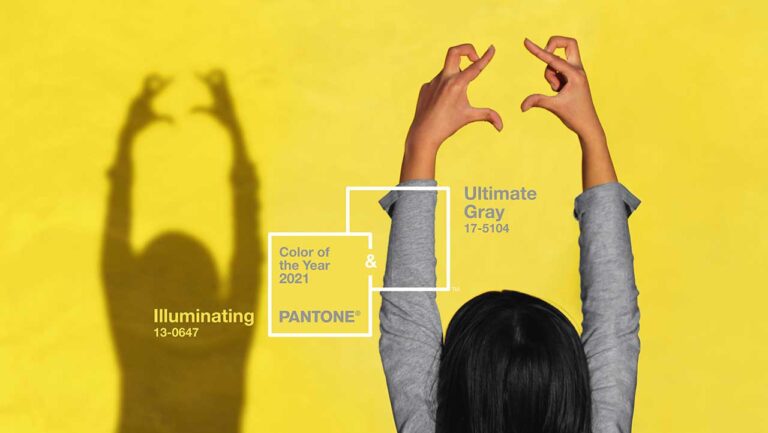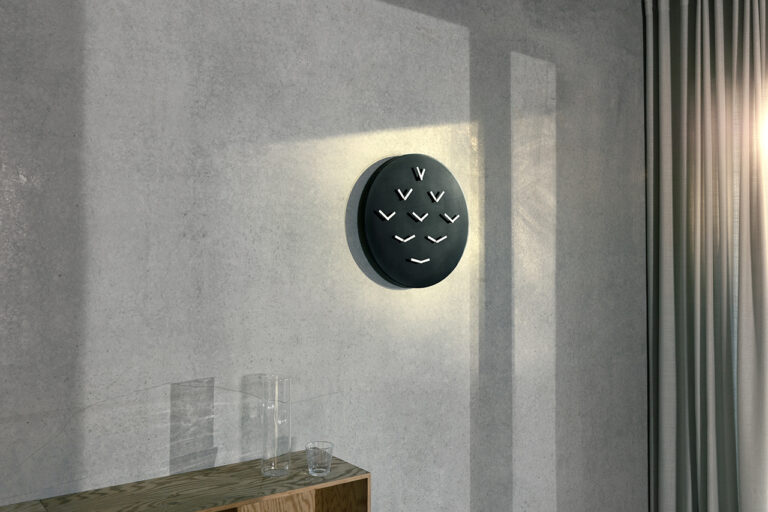Wish for WASH’s Jasmine Burton Is Changing the World From the Bottom Up
Jasmine Burton’s infectious, youthful energy has the habit of obscuring the breadth of the Atlanta, Georgia-based social impact designer and storyteller’s accomplishments – a polymath whose work has literally set out to improve the world from the bottom up for nearly a decade. As the founder of social startup Wish for WASH, a multi-pronged collective committed to bringing innovation to sanitation through culturally specific research, design and education, Burton’s efforts have focused upon human-centered design intended to serve communities rather than markets, people over profit, and improve the quality of life with quantifiable results.

We became aware of Burton’s participation in an online panel talk during the recent Where Are the Black Designers? conference, where she shared the challenges of operating as a Black female designer in an industry where diverse representation, especially of Black talent, is sorely lacking. We followed up with Burton to delve further into the topic of what it means to design as an agent of positive change through functional design.
Who is Jasmine Burton and what motivates your work as a designer?
It was during my freshman year in 2011 at Georgia Institute of Technology’s (GT) School of Design while studying Science in Industrial and Product Design I was inspired to do something about the global sanitation crisis at a women’s leadership conference. It was there I learned nearly half of the world doesn’t have access to a toilet; of those people, women and girls are disproportionately burdened. This reality was my call to action, and I left the conference and called my parents to say, “I know what I am supposed to do. I am supposed to design toilets”.
Three years later, my senior design team was the the first all-female team to win the GT InVenture Prize Competition, the largest undergraduate invention competition in the United States, for our invention of the SafiChoo toilet. Prior to graduation, I also founded Wish for WASH, a startup that has conducted iterative toilet innovation pilots and research in Kenya, Zambia, Uganda, Ethiopia and in the United States (Atlanta) guided by human-centered design, social inclusion and research lens.
I continued to pursue my passion for hygienic, equitable and sustainable sanitation as a Rotary Global Grant Scholar and MSc in Public Health graduate student at the London School of Hygiene and Tropical Medicine.

Looking back, what presented the biggest challenges in designing something so mundane, yet necessary as a toilet?
Over four billion people lack access to safely managed sanitation. People often resort to using unimproved pit latrines or holes in the ground that they share with their neighboring community members that are often overflowing, poorly maintained and/or far from home. These unimproved pits are also susceptible to collapsing during inclement weather and can result in spreading the fecal waste into both the ground and surface water sources. The lack of toilets in schools makes it incredibly challenging for young, pubescent girls to safely manage their menstruation; this frequently results in girls missing school during their period every month, which oftentimes leads to them dropping out of school completely.

How does the SafiChoo address these needs?
The SafiChoo toilet, our first line of sanitation relief products, is a novel toilet system that takes into account the common preference of a squatting position for defecation. The SafiChoo toilet’s most current, patent-pending design is composed of separate, modular units, which enables the user to build the system to best meet their specific needs as it relates to the actual toilet and as it relates to the waste management options that are available in their community. The intention is to use a human-centered design approach to improve the user experience of both the end user and the community waste management servicing team. In 2015, we conducted a crowdfunding campaign that was 100% funded to support a 2016 Zambian beta pilot.

In 2018, we started building out our educational portfolio by conducting a Design Thinking for Toilets course with an Atlanta-based high school and launched our first educational coloring book. In 2019, we coordinated and conducted a series of community-based design thinking workshops that sought to not only proliferate the design thinking methodology to the Atlanta public, but to also inspire our community to use this methodology as it relates to local water, sanitation and hygiene (WASH)related issues. Additionally, we launched our Wish for WASH Merch Store where each piece uses designs from Atlanta-based and women artists that support the Wish for WASH mission. Additionally, the proceeds from our merchandise goes to support our innovative sanitation initiatives. In 2020, we launched our WASH-related educational initiatives that are rooted in design thinking and instructional design with the Girl Scouts of Atlanta and the International Rescue Committee in Atlanta.

What role and responsibility do you believe designers have in regards to social impact?
In order to effectively, sustainably and holistically create a world that mitigates or even eliminates some of the global grand challenges of today, we need makers. We need creators. And this is why designers are so needed in the social impact space. Whether it’s UX, product design, graphic design, interaction design, etc – the skills and world views that creatives have is imperative in the social impact space. From data visualization, effective behavior change communications infographics, to rapid prototyping expertise, to truly know the human centered design process and being able to effectively use it – the impact space needs design.
In a world suffering from extreme poverty, pandemics, violence and inequity, we need more doers, creators and makers working in this space in tandem alongside policy makers, international development officers and business professionals to create holistic and interdisciplinary solutions to more effectively make sustainable change.

Initial design by Jasmine Burton, Erin Cobb, Brandie Banner and Becky Byler in 2013 at the Georgia Institute of Technology under the auspices of Sanivation. Further design and organizational developments beginning in 2014 have been created by the Wish for WASH team.

A notable degree of research went into the SafiChoo design, specifically in regards to ergonomics and posture. Could you describe your approach to empathetic design directed by the user rather than one dictated by the designer?
The Wish for WASH story has been rooted in Human Centered Design and Design Thinking methodologies. While we have used various frameworks to date, I was trained at Georgia Tech with an IDEO approach with the stages – Inspiration, Ideation, Implementation and Iteration.

The 1.0 SafiChoo toilet design was a result of over fifty interviews of various WASH (water, sanitation and hygiene) experts from around the world, as well as through studio and literature based ergonomic and human factors design. When we conducted the 2014 pilot in Kenya, we worked with various stakeholders and community members collecting quantitative and qualitative research to get user feedback about the toilet design (which required a lot of trust and relationship building particularly since we had a gender equity lens in this work and sanitation is often a very stigmatized topic for women in various cultures).
The feedback from that pilot fueled the design of the 2.0 SafiChoo toilet that we piloted in Zambia and in an Atlanta-based resettled refugee community. We have since iterated the design again based on the constraints and opportunities presented by having an aspirational and affordable toilet offering that could be on the market and used by people in both a developed market like Atlanta and in an emerging market like Lusaka. We are hoping to be able to conduct market viability pilots of the 3.0 version of the toilet in the coming years.


The Wish for WASH Team piloted a dry (waterless) version of the SafiChoo 2.0 toilet in a resettled refugee community garden in Decatur, Georgia from 2016-2017. The team is currently working to secure funding to finalize the 3.0 SafiChoo toilet design and determine a sustainable long term manufacturing plan with the goal of it meeting user needs in both American and Zambian settings.
To learn more about Burton’s process and efforts, check out this talk she gave at Women Deliver Talk last year, alongside a section of her portfolio dedicated to the history and design iterations of the SafiChoo toilet.





Leave a comment